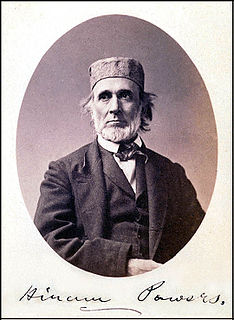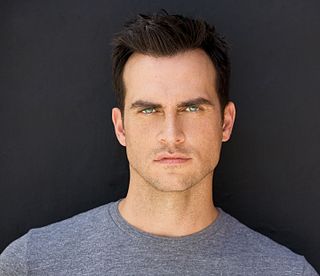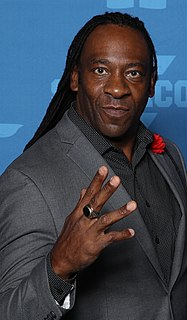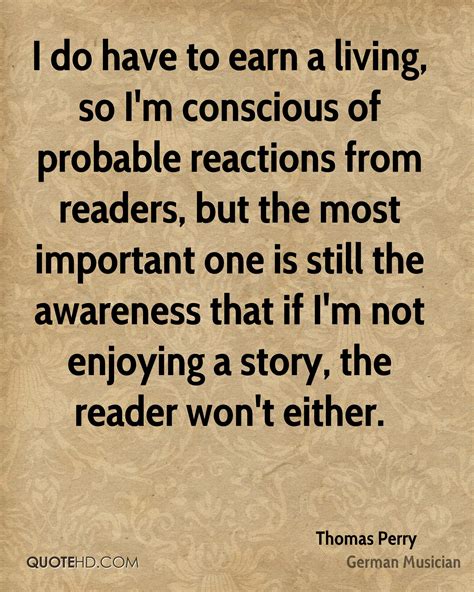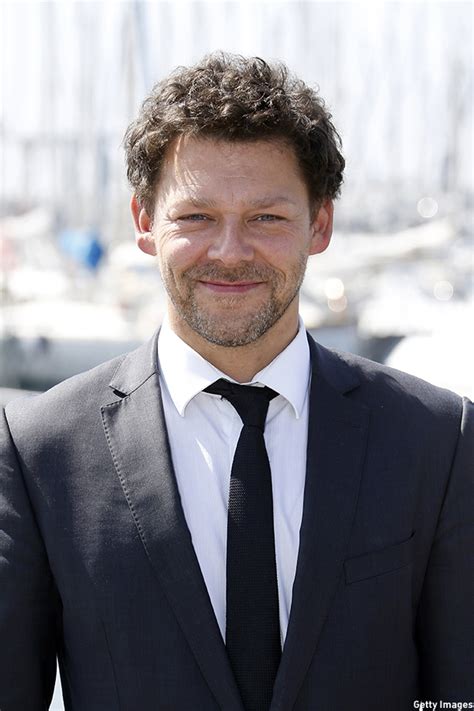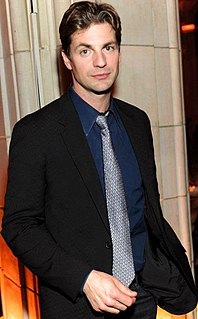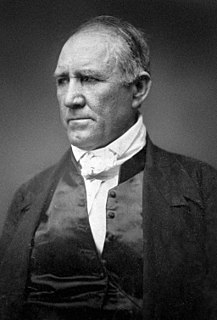A Quote by John Lithgow
Any character you play, you're on his side. You do have the third eye that looks at what an appalling creature he is, but you have to look at what's good about him.
Related Quotes
Michael, from 'Six Dance Lessons...' He was somebody who had a lot of self-loathing; being a gay man who lost his family and felt ostracized. It was an interesting character to play. He was so bitter and jaded about life. Even though I'm not like that personally, everybody has a side of themselves that tends to look at the negative side of things. He was an interesting character to play.
The parents have to learn that the child should not be insulted, humiliated, condemned. If you want to help him, love him more. Appreciate what is good in him rather than emphasizing what is bad. Talk about his goodness. Let the whole neighborhood know how nice and beautiful a boy he is. You may be able to shift his energy from the bad side to the good side, from the dark side to the lighted side, because you will make him aware that this is the way to get respect, this is the way to be honored. And you will prevent him from doing anything that makes him fall down in people's eyes.
If this thing's hushed up it'll be a simple denial to Jem of the way I've tried to raise him. Sometimes I think I'm a total failure as a parent, but I'm all they've got. Before Jem looks at anyone else he looks at me, and I've tried to live so I can look squarely back at him.. if I connived at something like this, frankly I couldn't meet his eye, and the day I can't do that I'll know I've lost him. I don't want to lose him and Scout, because they're all I've got.
One of the things in the Mary Shelley [Frankenstein] is that the creature tells his story, so this begins with the creature's point of view. So, it literally starts with the creature opening his eyes and is born - but is obviously in his 30s. But because they're the creator and the created we thought it would be really interesting if they could look at each other every other night and play each other's roles.
when someone speaks he looks at a mouth, not eyes and their colors, which, it seems to him, will always alter depending on the light of a room, the minute of the day. Mouths reveal insecurity or smugness or any other point on the spectrum of character. For him they are the most intricate aspect of faces. He's never sure what an eye reveals. but he can read how mouths darken into callousness, suggest tenderness. One can often misjudge an eye from its reaction to a simple beam of sunlight.
Some souls think that the Holy Spirit is very far away, far, far, up above. Actually he is, we might say, the divine Person who is most closely present to the creature. He accompanies him everywhere. He penetrates him with himself. He calls him, he protects him. He makes of him his living temple. He defends him. He helps him. He guards him from all his enemies. He is closer to him than his own soul. All the good a soul accomplishes, it carries out under his inspiration, in his light, by his grace and his help.
I never like to judge the character. I just have to leave my feelings of pity, or fear, about a character - whatever I feel towards the character, I try to leave to one side. It's good to have them, but it doesn't help me. I can't act those things. I just to play the character as truthfully as I can.
I think it's my job to like any character I play - to understand and appreciate a character, to look at the world as much as possible from their point of view. I don't look at it just technically: learn the lines, figure out what gestures I want to bring and play, and that's it. I like to learn as much as I can about the person, and see what happens.
Brian is an archetypal character, a bit like Don Juan, which is how I play him. He's a blast to play. He believes unapologetically in his freedom. He holds nothing back. Something I'm learning is, you can't hate the character you play. If I think my character is an asshole, that's all that will come across. He is drawn in an extreme way, but that doesn't mean he's not a person.
We are poor, feeble, and blind mortals when the eye of the Almighty looks through all worlds and by his power executes all things aright, and by his grace, he makes us all rich in Heavenly Gifts. In distress and in bereavements, we can look only to him. From mortals like ourselves we can derive no help.

